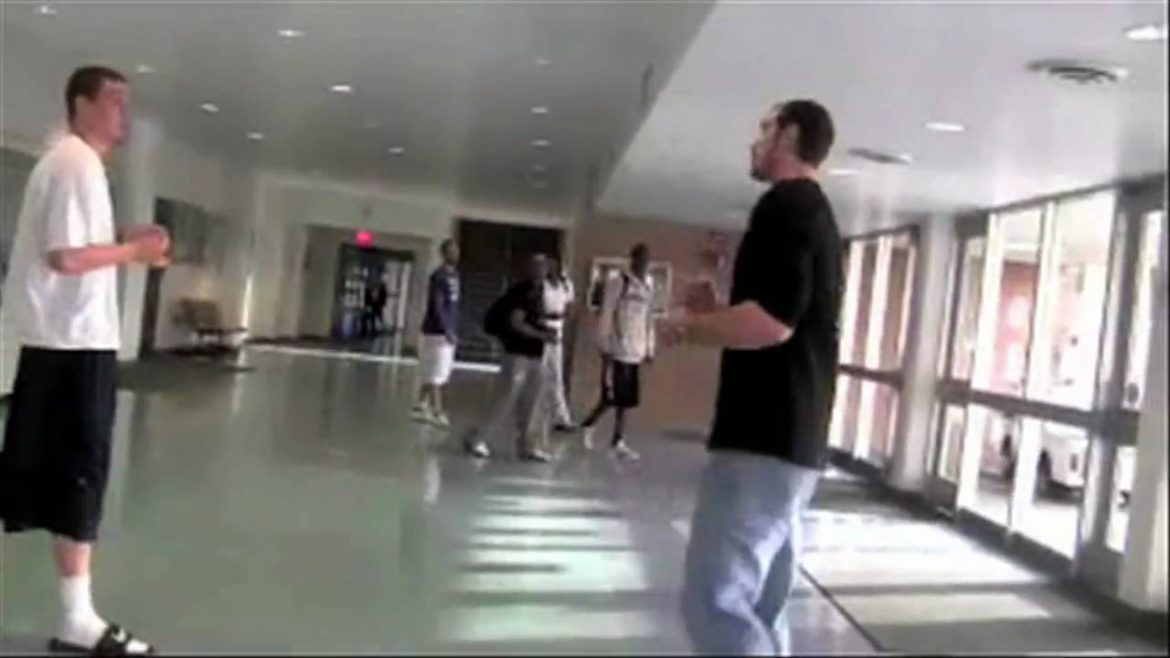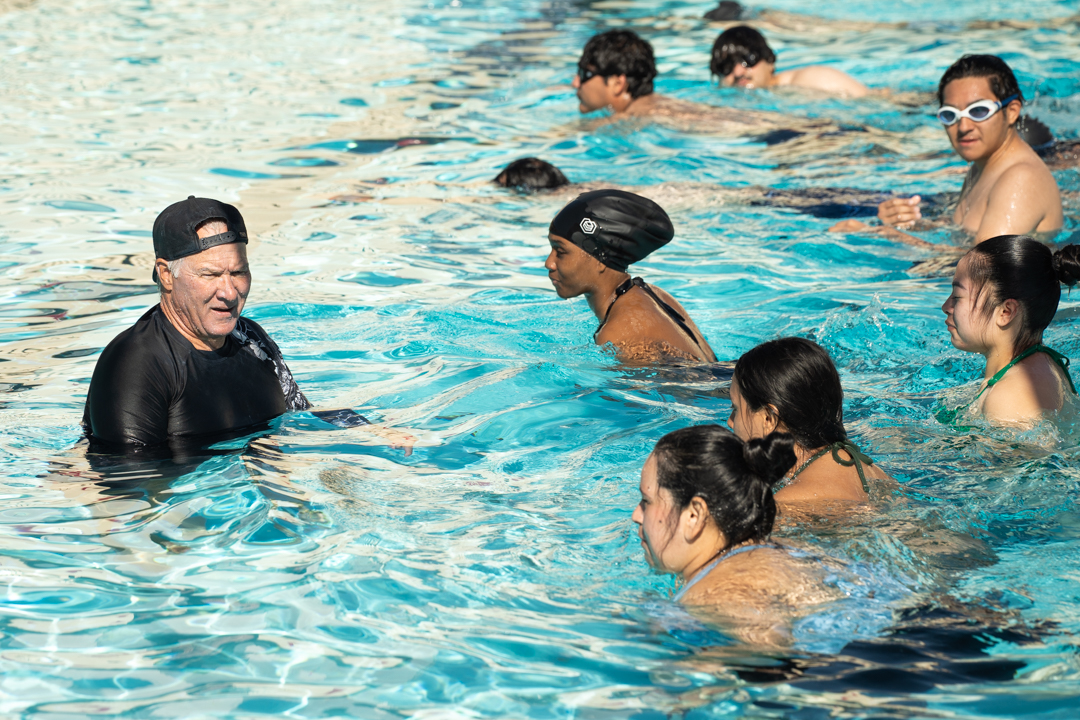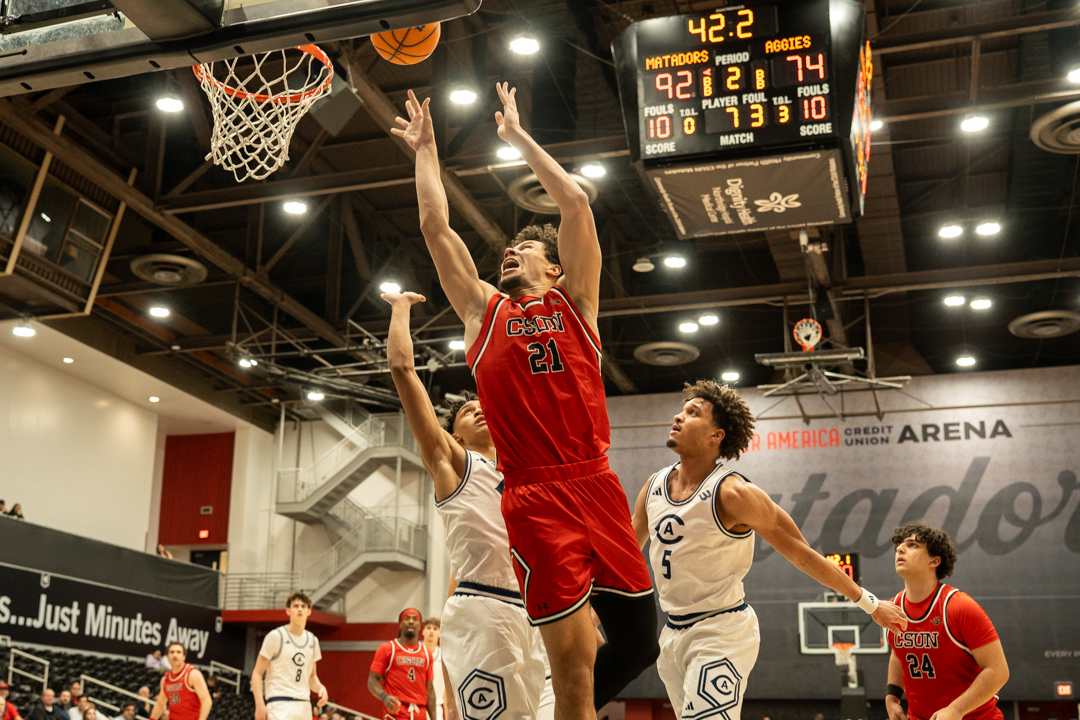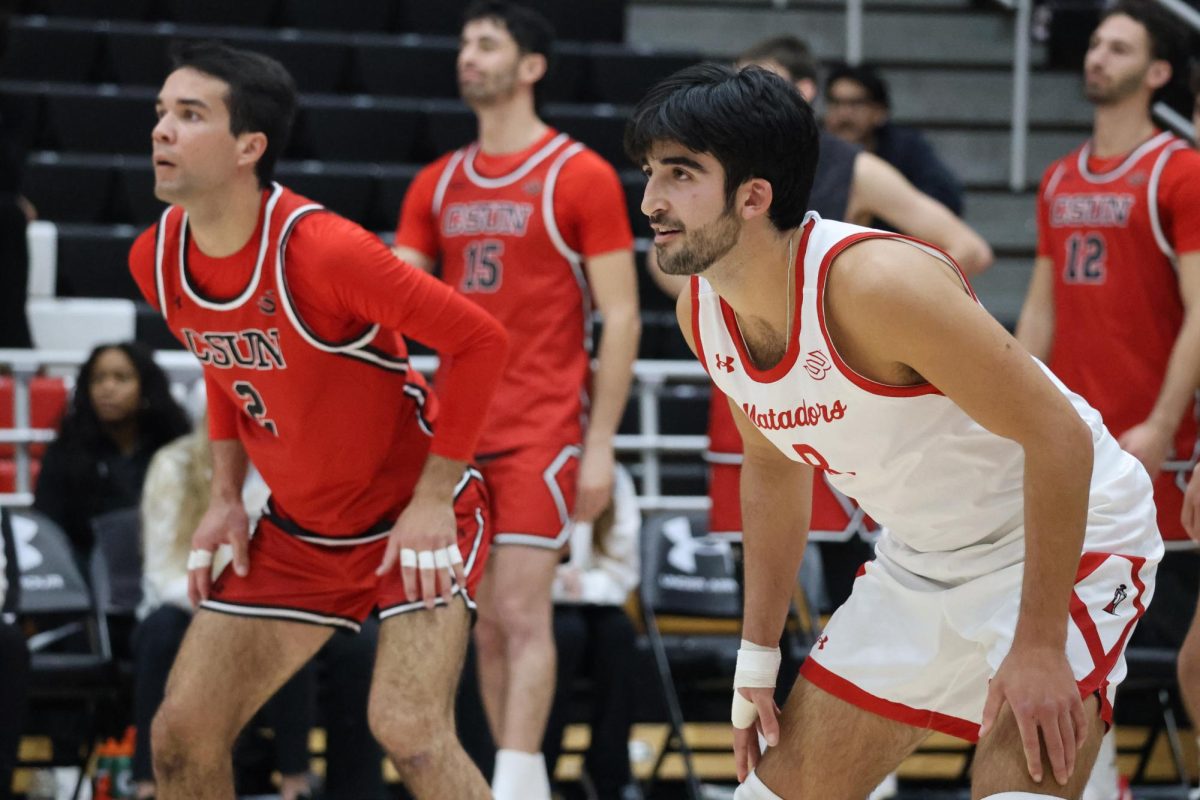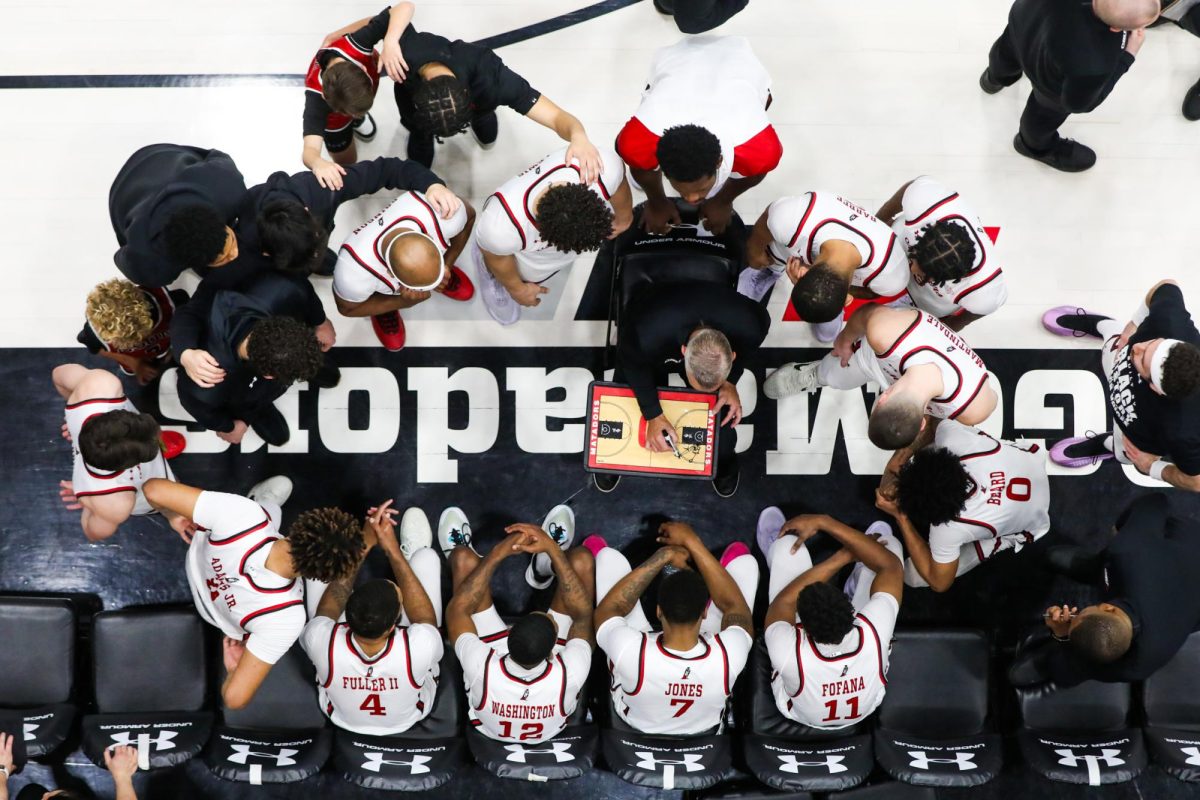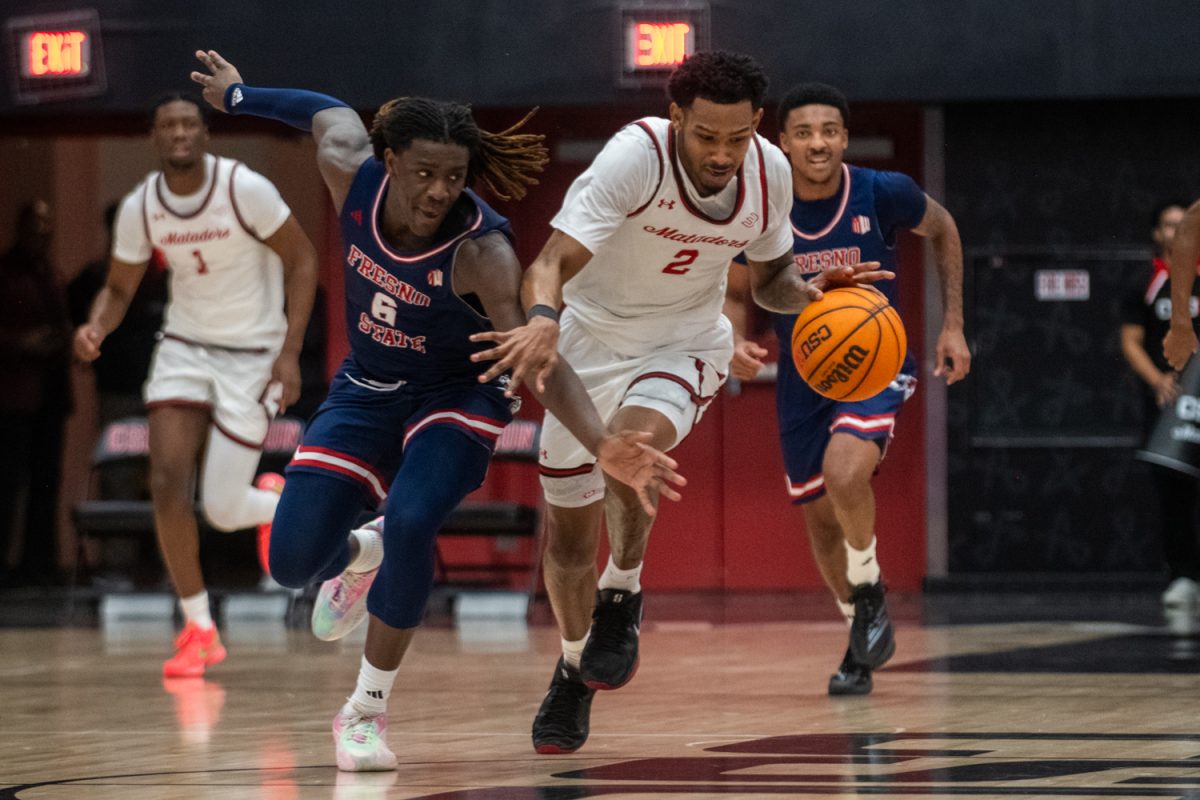
When a reporter asked CSUN forward Michael Lizarraga how it felt to be the only hearing impaired player ever to compete in an NCAA Tournament, Lizarraga immediately responded, “Did you say ‘hearing impaired’?”
According to the dictionary, the word “impaired” means to “be weakened, diminished or damaged.” But Lizarraga, who has conquered many obstacles in his life, doesn’t associate himself with any of those words.
The reporter, then realizing that Lizarraga didn’t deem the term applicable to him, replied, “Sorry, I mean deaf.”
A smiling Lizarraga said, “thank you,” and went on with the interview.
Lizarraga, a junior who played under the lights of the Sprint Center in the 2009 NCAA Tournament’s first round, was born deaf and has never wanted people to feel sorry for him or give him an easy way out.
Lizarraga has had the spotlight on him as of recently after Matt Brown, a well-known Southern California photographer, released a 20-minute film describing Lizarraga’s journey in earning an important role on the Matadors’ squad. Media outlets like ESPNU, the L.A. Daily News and CBS have also all jumped in and done features on him. Fox Sports West will also have a special feature on Lizarraga during halftime of Saturday’s CSUN-vs.-UC Irvine telecast (7 p.m.).
Lizarraga hasn’t been timid about his new exposure and instead has used this opportunity to be a role model for other deaf people, to let them know that they can achieve anything they desire.
“Most (deaf people) are probably intimidated by the fear of not being able to communicate,” Lizarraga said through Erin Matthews, his American sign-language interpreter. “By me playing and having an awesome time competing in the Division-I level, I’m showing that anything is possible.”
On Feb. 4, when the Matadors traveled to Riverside to play the Highlanders, one of Lizarraga’s friends brought a group of deaf children to watch him play. Whenever the Matador got a chance, he looked to the stands and waved at the kids. Afterward, he met with them and gave them inspiring words.
Lizarraga is also a role model at home. He wants his sister, Natalie, who also is deaf to pick up on his don’t-feel-sorry-for-me attitude.
But Lizarraga admits that, coming into CSUN, he was a little afraid.
“I didn’t know what (the team’s) perception of me would be,” Lizarraga said. “In Division-I, players are a lot bigger and stronger.”
Forward Willie Galick, Lizarraga’s teammate and best friend, was the one to step up and make the transition on the team a lot easier.
Galick wanted to figure out a way for his teammates and coaches to interact more with Lizarraga and not leave him out of the loop during practices.
“You kind of feel bad because he is not participating in everything we are talking about,” Galick said. “I suggested to write it on the chalkboard. People started doing that and becoming more familiar with Michael and his personality.”
Also, Galick took the time to learn sign-language and, when other team members noticed, they too wanted to learn.
“I was talking to Michael almost fluently and having conversations with him,” Galick recalled. “People were like ‘what are you doing? You took the time to (learn sign language)?’ And I was like, ‘yeah, it was really easy.’
“So I kind of got everyone to get involved with Mike by showing them a few signs here and there.”
Due to the recent budget cuts, Matthews hasn’t been allowed to travel with the team or be at every practice. Galick has filled in for Matthews in those instances.
“I put it upon myself to sign more in practice and keeping him in the loop because not only is he my best friend, he is a teammate,” Galick said.
Lizarraga is thankful for everything Galick has done.
“(Galick) is always willing to do anything for me,” Lizarraga said. “I’m really appreciative of that.”
Galick’s sign-language skills have given him an opportunity to interact with many deaf people.
“That’s been a real cool experience for me, being able to talk to everyone around me,” Galick said. “Especially people who don’t usually get to talk to hearing people because they don’t know sign-language.”
Lizarraga and Galick have both shown that hearing is not a requirement when it comes to being a role model.
